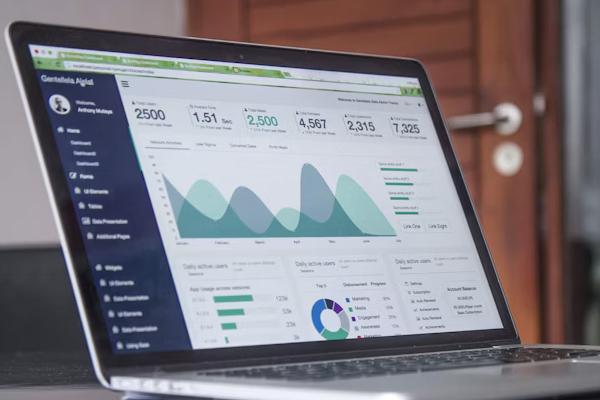Digital marketing is the methodology of advertising products, services, or brands utilizing electronic media, primarily via the internet. It has transformed the manner in which businesses connect with and engage consumers, providing targeted, quantifiable, and economical promotional strategies that were unattainable with conventional marketing techniques.
At its essence, digital marketing encompasses all promotional endeavors that employ the internet or an electronic device. Enterprises utilize digital channels such as search engines, social media networks, email, websites, and mobile applications to engage with existing and potential customers. A significant benefit of digital marketing is its capacity to aim at specific demographics with customized messages, enhancing the likelihood of engagement and conversion.
A fundamental element of digital marketing is Search Engine Optimization (SEO), which pertains to refining website content to rank higher in search engine results. This enhances organic (unpaid) visibility and drives traffic to websites. SEO comprises keyword analysis, content development, technical enhancement, and link-building methodologies.
Another essential component is Pay-Per-Click (PPC) advertising, which enables businesses to display advertisements on search engines or social media platforms, incurring costs solely when users click on them. Google Ads is a notable platform for PPC initiatives. These advertisements can generate immediate visibility and traffic, particularly advantageous for new product introductions or time-sensitive offers.
Content marketing is also integral to digital strategy. It concentrates on producing and disseminating valuable, pertinent, and consistent content to attract and engage a clearly defined audience. This may include blog articles, videos, infographics, podcasts, and more. Content marketing not only assists in educating consumers but also fosters brand authority and trust.
Social media marketing encompasses the utilization of platforms such as Facebook, Instagram, LinkedIn, X (formerly Twitter), and TikTok to promote content and interact with audiences. Social media enables businesses to personalize their brand, cultivate communities, and receive prompt feedback from followers.
Email marketing remains one of the most efficient digital channels. By dispatching personalized messages to a segmented audience, businesses can nurture leads, provide updates, present promotions, and sustain customer loyalty. Automation tools have enhanced the efficiency and responsiveness of email campaigns to user behavior.
Affiliate marketing is a performance-based model where companies compensate affiliates for driving traffic or sales through the affiliate’s promotional efforts. Influencers and content creators frequently employ affiliate marketing links to generate passive income.
Analytics and data monitoring are vital in digital marketing. Tools such as Google Analytics and Facebook Pixel enable marketers to assess the effectiveness of their campaigns in real-time. By comprehending user behavior, marketers can make informed decisions, optimize strategies, and enhance ROI.
Digital marketing also encompasses mobile marketing, video marketing, and influencer marketing, each of which plays a role in capturing consumer attention in the digital era. As technology continues to advance, so too does the digital marketing landscape.
In summary, online marketing is a vital instrument for enterprises of every magnitude. It enables accurate targeting, instantaneous feedback, and an international scope. With the appropriate strategy, online marketing can promote expansion, enhance brand recognition, and boost sales in a progressively interconnected world.
